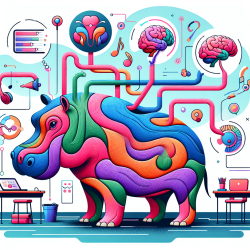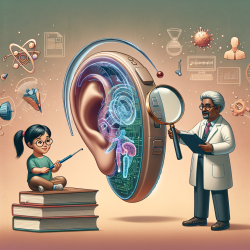Understanding the Hearing Hippocampus
In the world of special education, understanding the nuances of how our brains process sound is crucial. Recent research on the hippocampus, a part of the brain traditionally associated with memory and navigation, reveals its significant role in auditory processing. This discovery opens new avenues for educators and therapists to enhance learning experiences for students, particularly those with special needs.
The Role of the Hippocampus in Auditory Processing
The hippocampus is not just a memory center. It plays a pivotal role in how we perceive and process sounds. The research article, "The Hearing Hippocampus," delves into how this brain region responds to sound during passive listening, active engagement, and associative learning. It highlights the hippocampus's ability to shape its structure and function based on auditory experiences.
Practical Implications for Educators and Therapists
Understanding these auditory-hippocampal interactions can significantly impact educational strategies. Here are some ways educators and therapists can leverage this knowledge:
- Enhance Memory and Learning: By incorporating sound-based activities, educators can stimulate hippocampal activity, potentially improving memory retention and learning outcomes.
- Tailored Therapy Sessions: Therapists can design auditory-based interventions that align with the brain's natural processing pathways, making therapy more effective for students with auditory processing challenges.
- Prevent Cognitive Decline: Engaging students in auditory tasks may help maintain cognitive function and delay the onset of conditions like dementia, which are linked to hearing loss.
Encouraging Further Research
The findings from "The Hearing Hippocampus" encourage further exploration into the relationship between sound and brain function. Educators and therapists are urged to stay informed about ongoing research and consider participating in studies that explore innovative auditory interventions.
Conclusion
By understanding the hearing hippocampus, educators and therapists can unlock new methods to enhance learning and therapy for students. This research not only enriches our knowledge of brain function but also inspires practical applications that can transform educational and therapeutic practices.
To read the original research paper, please follow this link: The hearing hippocampus.










